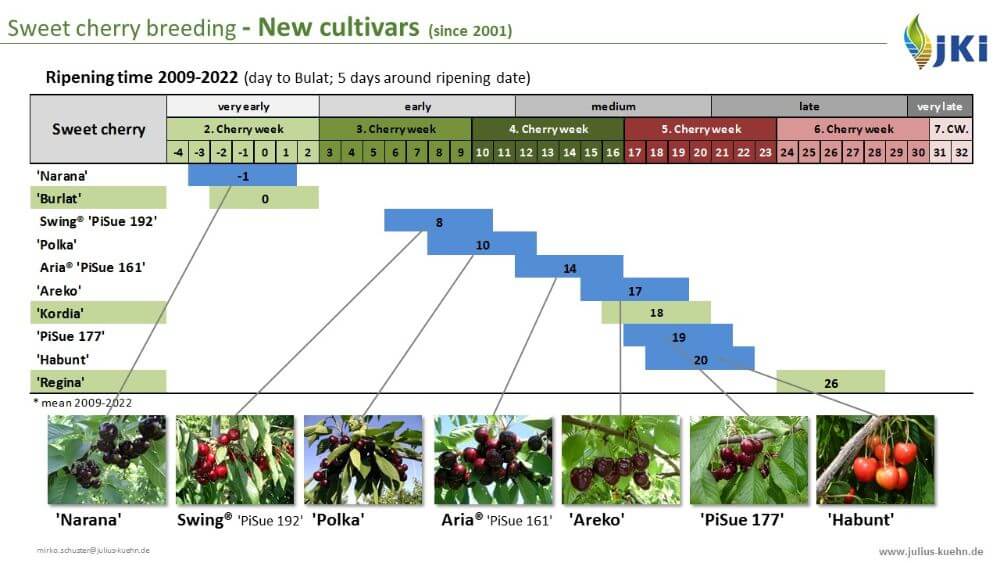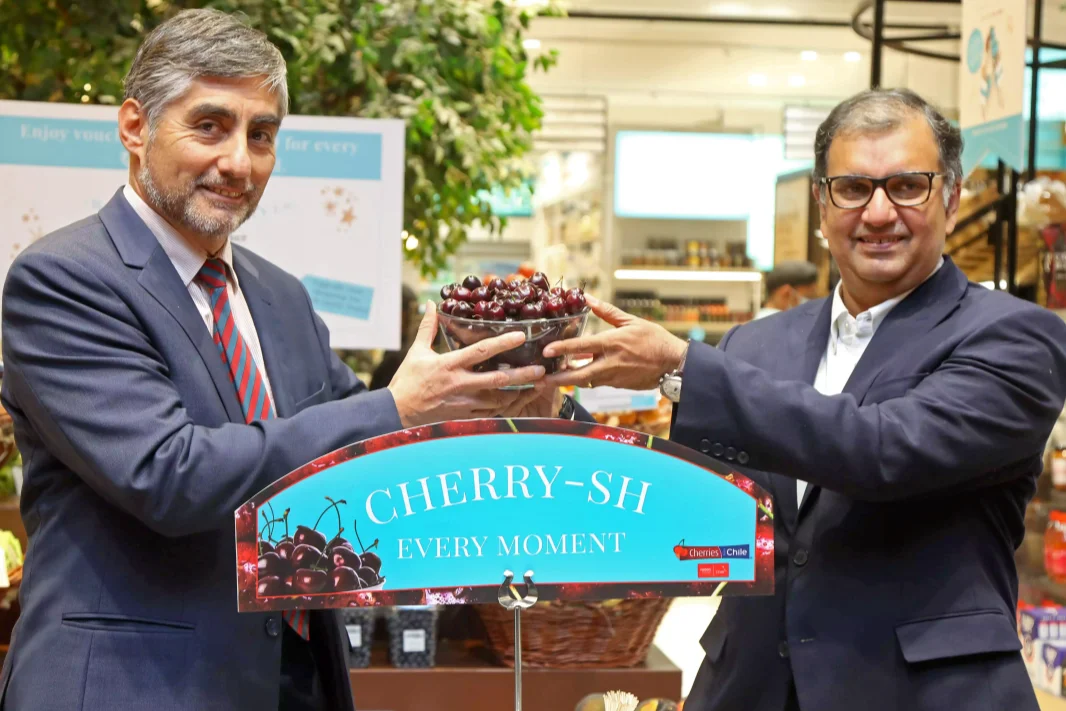The genetic improvement programme on the cherry tree at the Julius Kühn-Institut (JKI) has an almost century-long tradition. The first activities were started by M. Schmidt in Müncheberg in the 1930s. Later, M. Zwitzscher continued the project at the Max Planck Institut in Cologne by propagating the varieties Primavera and Sekunda, while E.L. Loewel in Jork selected and propagated a dozen varieties, including Regina.
More recently, in Dresden, M. Fischer started a new breeding programme aimed at self-fertility and resistance to bacterial cancer by Pseudomonas spp, leading to the release of the NA series varieties Namosa, Nadina, Namare and Namati.
Since 2001, the project has been in the hands of M. Schuster at the JKI in Pillnitz. The cherry varieties Narana (ripens with Burlat), Swing® PiSue 192* (+8 Burlat), Polka (+10 Burlat), Aria® PiSue 161 (+14 Burlat), Areko (+17 Burlat), PiSue 177 (+19 Burlat) and Habunt, a two-coloured cherry ripens 20 days after Burlat.
Below the report of Mirko Schuster presented at the workshop on cherry variety innovation at Macfrut 2023.











